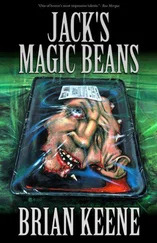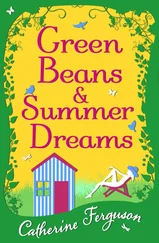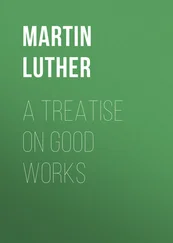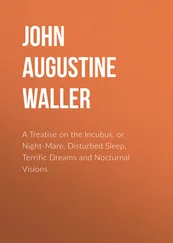Even today, when I think of her I find it hard to imagine that someone could be so young and work without any relief — anyone her age deserves a break. I couldn’t tell you exactly how old she was, she never mentioned her age, maybe she was embarrassed, but she put up with it all like someone much, much older.
Actually, in the depths of my soul I wanted her to be a whole lot older. Not for the reason you think. It’s only up to a certain age that you want something like that, then your desire starts to turn back. You think that from that moment we become worse people? I don’t think I agree. We’re already worse when we play in the sandbox.
Did you ever play in a sandbox when you were a child? Me neither. Why would anyone have made a sandbox for children in the village? There was sand everywhere, in abundance. Wherever the river turned, one bank would be sandy. You could roll in the sand, bury yourself, build things in sand, whatever you felt like. And not just by the Rutka. Though village kids aren’t drawn to sand the way children in the city are. You’ve got fields, meadows, woods, everything is wide open in every direction, above you, in the distance, who would want to play in sand? You could play anywhere. Like living, people lived wherever. Big houses weren’t necessary, no one needed to be apart. People lived in the yards, in the barns, in the cattle sheds, the orchards, the fields, on the meadows, under the sky, by the Rutka. The whole world was our home, while our actual home was only there so we could all come together at the end of the day. So everyone wanted to be as close as possible to the next person. In some houses there wasn’t even a separate living room, just one big room, then you were closest of all. It was only when you were tightly crammed in that you could truly feel you were together. Who would have made a sandbox for the children, when the children also wanted to feel they were part of everyone else. If it had occurred to anyone to build a sandbox like you see in the cities, do you think any child would have wanted to play in it? You could have tied them there on a chain, they would have broken free. And the sandbox would have become a home for chickens and geese and ducks, they like to play in sand, they would have made a big old mess in there and that would have been the end of the sandbox.
When I was abroad I spent a lot of time watching sandboxes. Wherever I lived, in among the apartment buildings there were always sandboxes. As I mentioned, I like children, and so whenever I had a little time I’d sit on a bench by one of the sandboxes, among the nannies and mothers and grandmothers. And let me tell you, when I watched the children playing in the sandbox, I’d sometimes be moved, but also fearful.
Believe me, a sandbox is a whole world. A couple of square yards, but it’s an entire world, humanity, future wars. Nice rosy little faces, you’d think they were all quite innocent, but you could already tell who would bury who in the sand, and who would hide from who in the sand. Which of them would one day find the sandbox too small, and which of them would soon get lost in it. Was the sandbox really to blame? Some people reckon so. But when I think about it I sometimes have the feeling that we’re all exiles from the sandbox, whatever our age. Me too, though I never played in a sandbox.
You know, when I was abroad I even saw sandboxes with colored sand. Green, blue, pink. I think it was dyed. Where could they have found sand in those colors. But can colored sand make us different? It’s true that we’re affected by colors. But not everyone is influenced to the same extent by the same colors. And we’ve no idea who is more affected by what color. Or which color fades in which person or which one grows brighter. And are the colors we see the same when they’re within us? Besides, tell me this: Can anyone come up with a wiser color for sand than the color of the sun? A wiser color for leaves than green? Or blue for the sky? White for snow? Of course colors are wise. Didn’t you know that? If it hadn’t been for the white snow back at that time, then …
What’s my favorite color? What are you, a journalist? No, that much I know for sure. You don’t even look like a journalist. What color? Oh, I don’t know. I wasn’t expecting that question. I don’t have a favorite color. Anyway, would it mean anything if I said, for instance, green? Because which green would it be? Each tree in the woods, each bush, each leaf, even moss, is a different kind of green. And in you, all of that turns into a different kind of green again. So can you say that something is green? Green is an infinity. Each color is an infinity.
As I stared through that crack in the cellar door, I was amazed to see one kind of whiteness turned into another, then a moment later into a different kind again, without ever going back to the previous one. It was like waves of whiteness rolling over the white snow. So what do you think the color white is? You’re messing with me. You’d like to see me spend my whole life in the sandbox. I’d want that too. Except that no color is forever. Color is change, like everything else.
When I was abroad I’d sometimes visit art galleries and museums. You too? Then you must have noticed that for each artist, the hardest color is the flesh of a woman. Even with the same artist, from one picture to the next. I don’t mean that the color changes, just that there’s a kind of helplessness in the face of that color. So can you say that a woman’s body is such and such a color? Since the color might depend, say, on the painter’s self-doubt? Or on his fear, his anguish, his despair? Yes, sometimes his desire as well. As I looked at the paintings I’d often have the impression that all those colors were unequal to some challenge, as it were. No, not what you think — not unequal to the model. Then what challenge? You’d have to provide the answer yourself, if you’ve been with women.
The sister wasn’t at all shy in front of me, she would bathe naked. Sister, that was what everyone called her, me too. Actually, that was the first word I spoke. Sister. Because for the longest time I didn’t talk at all. I just didn’t. It was like I didn’t know how. Like I didn’t know any words. I was simply mute. In fact, she was the one who taught me that first word. Call me sister, she said. That’s what everyone calls me. Go on, say it: sister. Say, sister. Sis-ter.
She’d always have me stand guard when she bathed.
“You can see me,” she’d say. “But make sure none of the others are watching.”
Wherever there was a little stream or creek or spring, she’d always bathe. Actually we only ever stopped at places where there was water. After all, you had to have something to drink, to clean yourself in, and there was always a lot of stuff that needed washing. Bandages for a start. I helped her with it all. Whatever needed washing I’d carry down to the water, then later hang it out on branches to dry. I didn’t speak, but I understood what was said to me, by her and by the others. Whenever she was dressing a wound I’d hold things for her, take things out of her bag, use the scissors, help her tie the bandage. When she had to wash someone because they were lying there like they were dead, I’d hold his head up, or his side if he needed to be turned on his side. I’d take his boots off, because she’d always wash his feet as well, even though his feet weren’t injured, she’d say it’d be easier for him with clean feet. You can’t imagine what state their feet were in, covered in blisters, sores, scabs, often rubbed to the point of bleeding, infected.
One time we came to a biggish lake in the woods. We stopped there for longer than usual. They said the place was untouched by humans, no one would find us there. It was true, you could even tell from the trees, they were falling over from old age. You could pick your fill of mushrooms, blackberries, wild strawberries, blueberries. And there were birds everywhere you turned, let me tell you. Birds to your heart’s content. Right from daybreak the woods echoed with birdsong. On the lake there were moorhens, ducks, swans. It was the perfect place to rest up after all that walking, catch up on some sleep, lick your wounds, and even forget about the war for a short while. The truth was that I didn’t know if it was still going on or if maybe it was over. No one said anything. We kept trekking about in the woods, avoiding the villages. I remember one time we crossed some railroad tracks, another time we went over a bridge, and one night we spent in a windmill. All I saw was them carrying out full sacks of something and putting them in a wagon. They told me to sit on the sacks. Then they walked alongside, and I rode on the wagon. In the end I fell asleep, and when someone eventually took me down from the sacks we were already back in the woods. Another time we were at some country estate, though only in the grounds. They brought out some food for us, we ate then moved on.
Читать дальше












